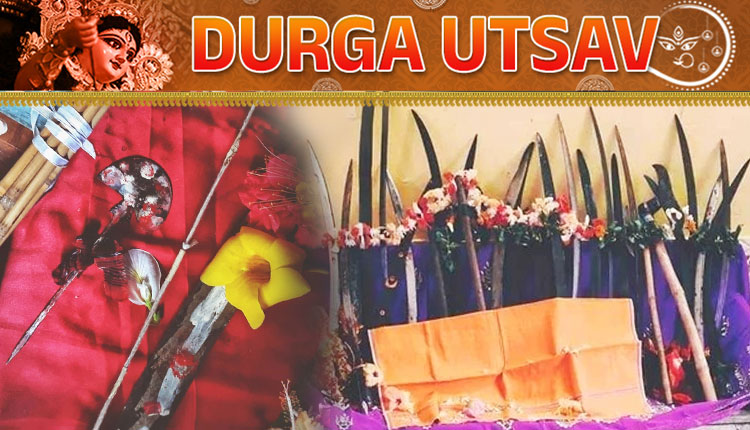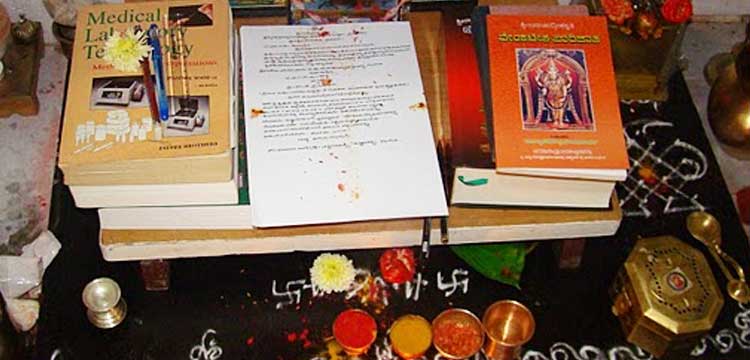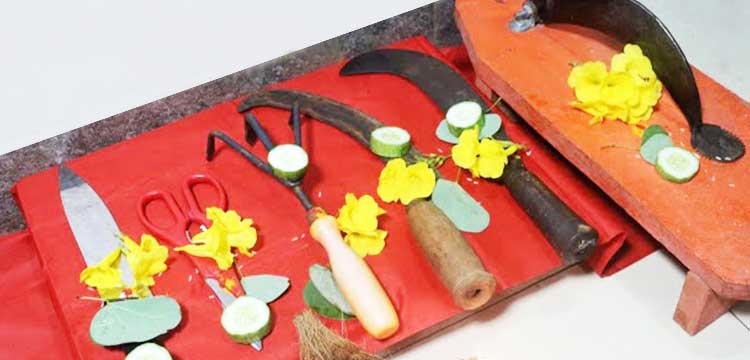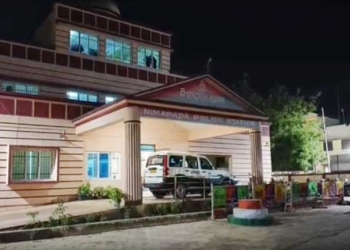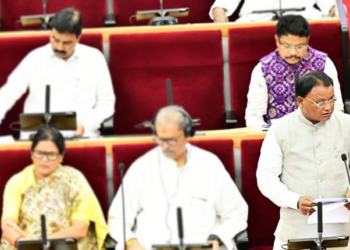Bhubaneswar: In Odisha, Durga Puja is more than festivity—it is a reverent celebration of work, wisdom, and the eternal bond between the divine mother and her children.
Here, Dasahara is not only about the slaying of Mahishasura but also about honouring the tools that shape life. This unique tradition, known as ‘Saaja Basa’ and ‘Lekhanee Basa’, transforms Durga Puja into a festival where labour and knowledge themselves are sanctified.
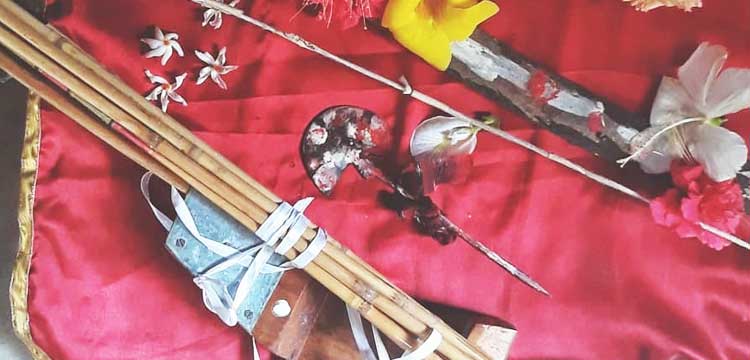 On this day, every community consecrates the instruments of their trade. The term ‘Saaja’ refers to tools—each profession offering its lifeline to the Goddess in gratitude. The ritual reflects a deeply ingrained philosophy: work is divine, and the dignity of labour is universal.
On this day, every community consecrates the instruments of their trade. The term ‘Saaja’ refers to tools—each profession offering its lifeline to the Goddess in gratitude. The ritual reflects a deeply ingrained philosophy: work is divine, and the dignity of labour is universal.
Brahmins place before the Goddess their Geeta, Veda, and the sacred Shalagrama stone. The Kshatriyas honour their martial heritage by worshipping swords (Khanda), shields (Dhala), and helmets (Kharpara).
The Vaishyas (trading community) revere their weighing scales (Taraju), measures (Mana), balance stones (Nikitee), and other trade implements. The Kansaris (brass metalworkers) offer their hammer (Hatudee), while the Badheis (carpenters) consecrate their Sanduashee (pliers) and Puja Khadhee (marking chalk).
The Hadis, custodians of rhythm, worship their drums (Dhola), conch (Sankha), and Changu (percussion instruments). The Panas dedicate their axes (Tangia) and knives (Katuree).
Even within the Vaishya fold, sub-groups celebrate their tools of trade, reminding us how each occupation, no matter how humble, holds a sacred place in Odisha’s cultural ethos.
Parallel to this is ‘Lekhanee Basa’, where the scribes—the Karanas—worship the Lekhanee or Luhakanta, the iron stylus once used to etch words onto palm leaves. This act elevates knowledge and record-keeping to divine service, symbolising the sanctity of learning itself.
The ritual extends into modern homes too. On Vijaya Dasami, families clean and decorate their vehicles and household tools, adorning them with vermillion, bangles, red cloth, and garlands of lemon and chilies, worshipping them as embodiments of Goddess Durga.
Historically, Odisha’s Dasahara also bore martial tones, with Paikas performing martial dances and weapon worship, reflecting a time when the festival was also a warrior’s tribute.
Today, those echoes remain, but the core spirit endures: in Odisha, Durga Puja is not only about devotion but about honouring the very instruments of life, livelihood, and learning.
Thus, Saja Basa and Lekhanee Basa are more than rituals—they are cultural philosophies that remind us that every hand that works, every mind that learns, and every tool that creates is blessed by the divine mother herself.




